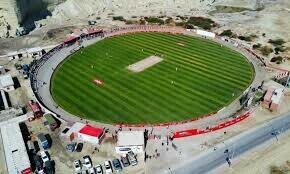ISLAMABAD, July 16: The Supreme Court refused to entertain a petition filed against drone attacks saying the matter did not fall in its jurisdiction.
The petition was filed by Saeed Khursheed Ahmed, a lawyer, on June 24.
The registrar office of the apex court on July 9 returned the petition advising the lawyer to “approach the proper forum for redressal of your grievance.”
The court pointed out that “the drone attacks are being made in the Federally Administered Tribal Areas (Fata) wherein this court has no jurisdiction under Article 184 (3).
The court can only exercise jurisdiction in the areas where constitutional provisions have been extended by the law.”
It added: “Under Article 247 (7) of the constitution, neither the Supreme Court nor a high court shall exercise any jurisdiction in relation to tribal area, unless (Parliament) by law otherwise provides.”
The petitioner contended that the US Central Intelligence Agency (CIA)’s special activities division had continued the drone attacks in Pakistan since June 18, 2004, killing approximately 3,500 people in the sovereign territory of Pakistan.
The new government also seems helpless to stop the attacks, he added.
The petition pointed out that “the justification of drone attacks by the CIA is still a mystery for the Pakistani people as they were not provided actual information with regard to the permission for the attacks.
The petitioner asked the court to determine “whether the Pakistan government had any executive agreement with the US which permitted the CIA for conducting the drone attacks inside Pakistan?
“Whether the drone attacks, even if under any agreement between the two governments, are not in violation of the right to life enshrined in article 6 of the International Conventions on Civil and Political Rights and article 9 of the constitution of Pakistan?”
Commenting on the petition, Justice (retired) Tariq Mehmood said though it was not the mandate of the Supreme Court to stop the drone attacks, during the last four years the apex court had widened its scope of jurisdiction.
He said the Supreme Court had taken suo motu notice on issues which were not related to it as these were the executive’s domain, adding Karachi and Balochistan situation pertained to the respective governments and despite the intervention of the apex court peace could not be restored in the troubled areas.
In the same breath, he observed, the executive was not performing its responsibility, prompting the apex court to intervene in its domain.
Senior lawyer Mian Abdul Rauf, however, believed that Fata was also part of Pakistan and the Supreme Court had the jurisdiction all over the country.
Syed Qalbe Hassan, the chairman of Pakistan Bar Council (PBC), when contacted, said if the Supreme Court could not take up the matter, the petitioner may approach the Peshawar High Court against drone attacks.













































